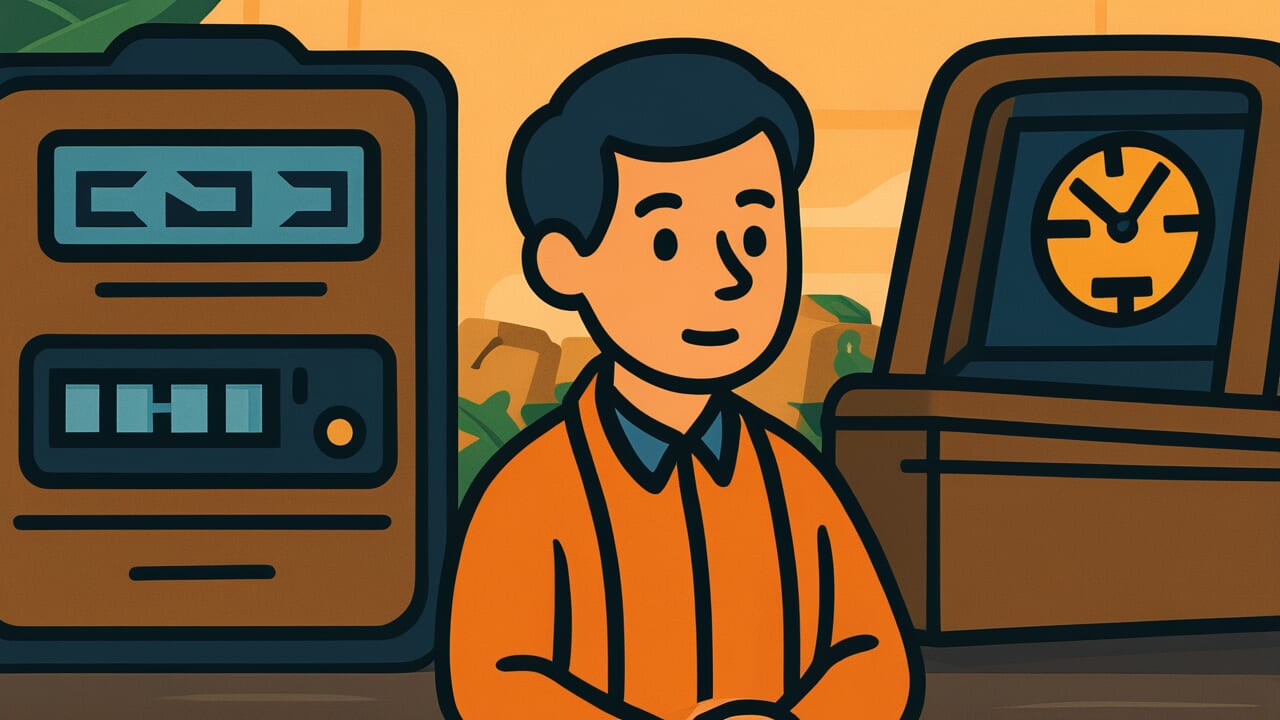How to Read “Patience when you don’t have, frugality when you do”
Nai toki no shinbō, aru toki no ken’yaku
Meaning of “Patience when you don’t have, frugality when you do”
This proverb teaches that you should endure patiently when you are poor. But more importantly, you should avoid waste and save money when you become wealthy.
Life has its ups and downs. There are difficult times and fortunate times. Enduring hardship when you’re struggling seems obvious.
But the real wisdom lies in the second half. When you have money and resources, that’s when you must stay disciplined and practice frugality.
People tend to become careless with money when they have plenty. They loosen their purse strings and spend freely.
However, good times don’t last forever. Today’s wealth may not continue tomorrow. That’s why it’s crucial to save and avoid waste when you have abundance.
This proverb has been used especially by those managing household finances and running businesses. It offers practical wisdom for navigating life’s waves.
Origin and Etymology
The exact literary origin of this proverb is unclear. However, it likely developed from the wisdom of common people during the Edo period.
Japanese society at that time was based on agriculture. Good harvests and bad harvests greatly affected people’s lives.
Some years brought abundant crops. Other years brought poor weather and food shortages. In this unstable life, people turned their survival wisdom into words and passed them down.
This proverb uses a structure of two contrasting situations. “When you don’t have” versus “when you do.” “Patience” versus “frugality.”
What’s interesting is that both situations require restraint and self-control. The teaching says you need discipline not just when poor, but also when wealthy.
This shows the deep insight of our ancestors who understood human nature well.
During the Edo period, merchant families valued the concept of “shimatsu,” which means avoiding waste and treasuring possessions. This spirit was passed down as family teachings.
This proverb likely spread through word of mouth as part of that practical life philosophy. It’s a condensed expression of wisdom refined over a long history.
Usage Examples
- Don’t splurge just because you got a bonus. Remember “Patience when you don’t have, frugality when you do” and save it.
- Sales are strong now, but we should review expenses with the spirit of “Patience when you don’t have, frugality when you do.”
Universal Wisdom
The truth this proverb speaks touches the essence of human psychology. We can naturally endure during hard times. We have no choice.
But the real challenge is disciplining yourself when you have plenty.
Humans have a tendency to believe “the present will last forever.” This is similar to what psychology calls “normalcy bias.”
When things are going well, that state feels normal. We lose our sense of danger. When stock prices keep rising, we think they’ll rise forever.
When income increases, we believe it will keep increasing. This illusion has caused many people to fall.
Our ancestors understood this human weakness well. That’s why they left us the seemingly contradictory teaching of “frugality when you do.”
Practice restraint when you’re wealthy. This is easy in theory but extremely difficult in practice. Because it goes against our instincts.
Yet this paradoxical wisdom brings long-term stability and happiness. Life always has waves.
You prepare to ride those waves when the sea is calm. This is a survival strategy that transcends time. It’s wisdom humanity has learned throughout its long history.
When AI Hears This
In physics, entropy in a closed system always increases over time. Just as a room gets messy without cleaning, maintaining order requires constant energy input.
Household finances have exactly the same structure.
Being patient when you don’t have money is a preparation period for maintaining low entropy, an ordered state. Frugality when you have money is the continuous energy input that fights against increasing entropy.
For example, if someone earning 50,000 dollars saves 5,000 dollars annually, they’ll have 50,000 dollars in ten years. But the moment they stop this energy input of frugality, living expenses naturally expand.
This is unavoidable as a physical law.
What’s interesting is that wealthier people tend to make this “anti-entropy activity” a habit. They don’t increase spending proportionally to income increases.
By continuously inputting energy, they maintain a low-entropy state. Meanwhile, statistics show about 70 percent of lottery winners go bankrupt within five years.
This happens because they have temporary order (large sums of money) but no continuous energy input (frugal habits). Entropy increases rapidly as a result.
The cycle of poverty can be explained by the same principle. With low income, there’s insufficient energy to devote to anti-entropy activities. The system naturally becomes disordered.
Lessons for Today
This proverb teaches you the importance of understanding life’s rhythm. If you’re in a good period now, that’s wonderful.
But don’t take that good fortune for granted. Today’s comfort can become the strength to overcome tomorrow’s difficulties.
Specifically, make it a habit to always save a fixed percentage of your income. When you get a bonus, a raise, or unexpected income, remember these words.
Don’t spend it all. Set aside a portion as an investment in your future self.
On the other hand, if you’re in a difficult period now, it won’t last forever. Your current experience of patience is making you stronger.
And when prosperity comes next, you’ll understand its value more deeply.
Life is a wave. The trick to riding that wave well is not getting carried away in good times and not losing hope in bad times.
This proverb teaches that sense of balance. It can become a compass for your life.



Comments